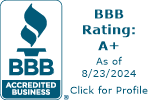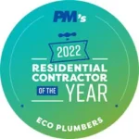Introduction
For homeowners with septic systems, installing a sewer line requires thoughtful planning and professional execution. Unlike properties connected to municipal sewage, septic systems are self-contained and require a different approach when it comes to integrating or replacing sewer lines. Improper installation can lead to backups, contamination, and costly repairs. Understanding the specific needs of your septic system helps prevent these issues and supports your home’s long-term functionality. From choosing the right materials to planning the layout, every step in sewer line installation in Hilliard OH, plays a role in protecting your property and ensuring code compliance.
Smart Sewer Tips for Homes with Septic Systems
1. Understand the Relationship Between Your Septic System and Sewer Line
The sewer line connects your home’s plumbing to the septic tank, making it a critical component of waste removal. Homeowners must know how their system functions to avoid interfering with natural flow or venting. The sewer line should be positioned to allow gravity to move wastewater efficiently. Misalignments can cause slow drains or backups. A professional inspection of your current setup is recommended before installing a new line.
2. Choose the Right Materials for Long-Term Durability
Septic-connected sewer lines must withstand moisture, ground pressure, and chemical exposure. PVC and HDPE pipes are commonly recommended due to their durability and resistance to corrosion. Avoid using outdated materials like clay or cast iron, which can degrade over time. The pipe’s thickness and rating should meet local codes and soil conditions. Using high-quality materials upfront helps prevent leaks and costly future repairs.
3. Ensure Proper Slope and Ventilation in the Line Design
The sewer line needs the correct slope—typically 1/4 inch per foot—to move waste efficiently to the septic tank. Too steep or too flat a slope can lead to blockages or sluggish flow. Ventilation is equally crucial, allowing gases to escape safely while maintaining pressure balance. Poor slope and ventilation design are common causes of sewer odors and slow drainage. Consulting with a licensed plumber ensures these elements are correctly integrated.
4. Comply With Local Codes and Septic System Regulations
Every locality has specific plumbing and septic system codes that must be followed for legal and environmental reasons. These codes often dictate pipe materials, slope, burial depth, and setback distances from wells or property lines. Failure to comply can result in fines or forced reinstallation. It’s wise to have your project reviewed and permitted by local authorities before any excavation begins. Hiring professionals familiar with local regulations avoids costly mistakes.
5. Invest in Professional Installation for Peace of Mind
Even if you’re a skilled DIYer, sewer line setup for a septic system is best left to experienced plumbers. They bring the knowledge, equipment, and certification needed to complete the job correctly. From trenching and sealing to pressure testing and final inspection, professionals handle the details that protect your home. A quality installation ensures long-term reliability and avoids future excavation work. Choosing an expert also ensures all work is guaranteed and insured.
Installing a sewer line in a home with a septic system isn’t just about digging a trench and laying pipe—it’s a critical project that impacts your entire plumbing infrastructure. With the right materials, slope, ventilation, and code compliance, you can protect your system from early failures and environmental hazards. Professional guidance ensures you don’t miss essential details that could cost thousands down the line. Thoughtful planning and expert help lead to a smoother, safer installation process. Whether building new or replacing old piping, making smart choices today leads to long-term peace of mind.
Conclusion
Protect your septic system with expert sewer line setup and drain cleaning in Chillicothe OH. Contact our experts at Eco Plumbers, Electricians, and HVAC Technicians at (855) 326-7586 for reliable, professional service.
📌 Local pros you can trust! Eco Service Center offers fast, reliable plumbing, electrical & HVAC help—friendly service, done right.












